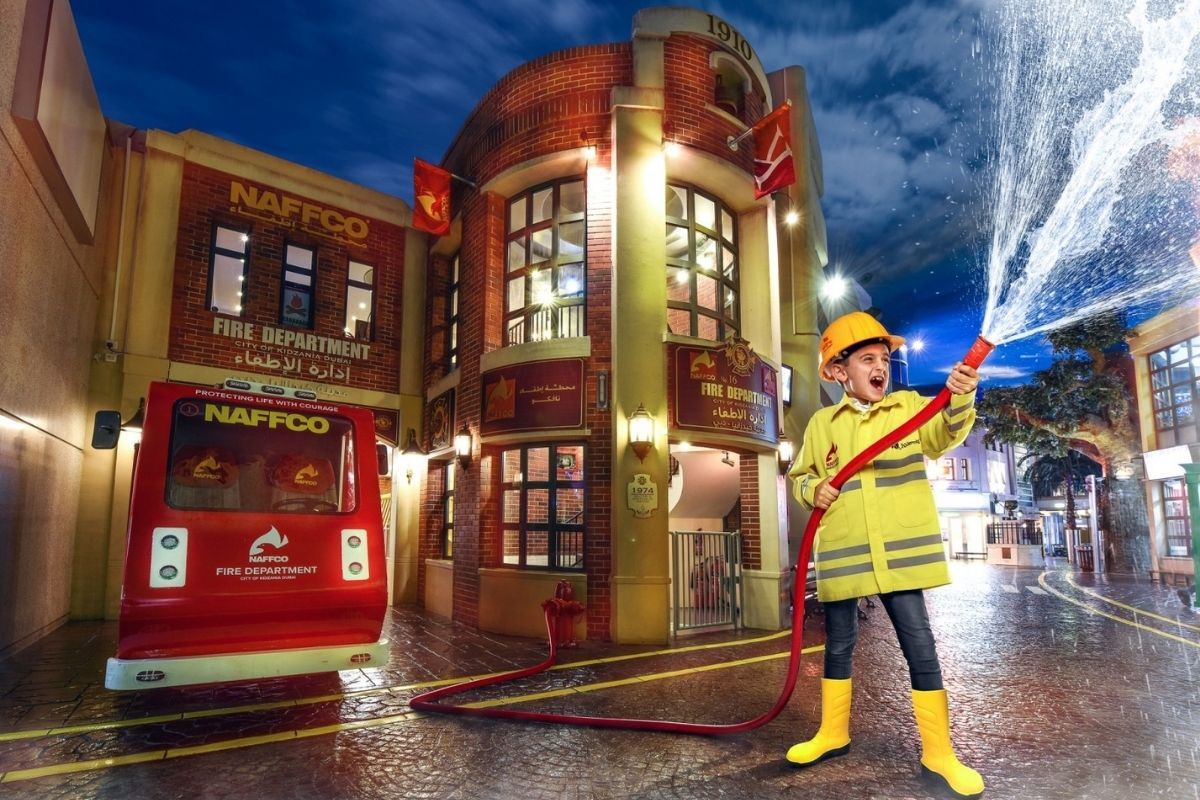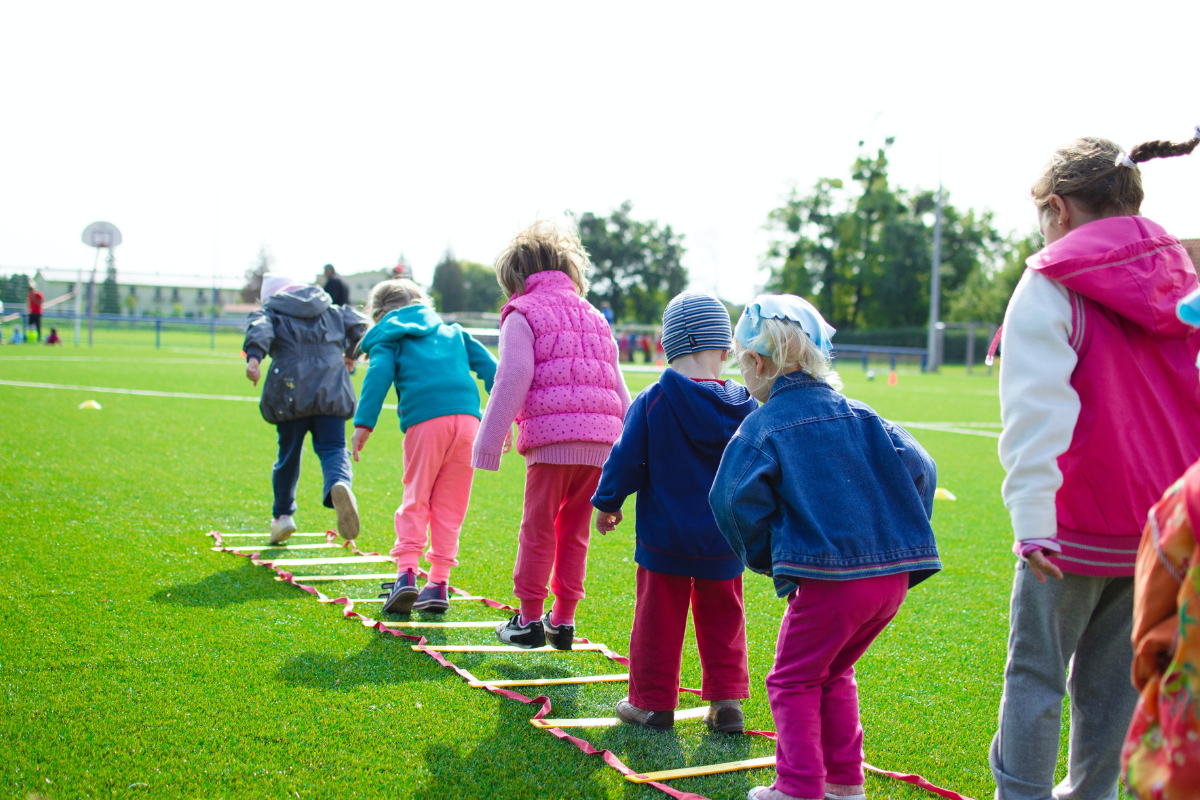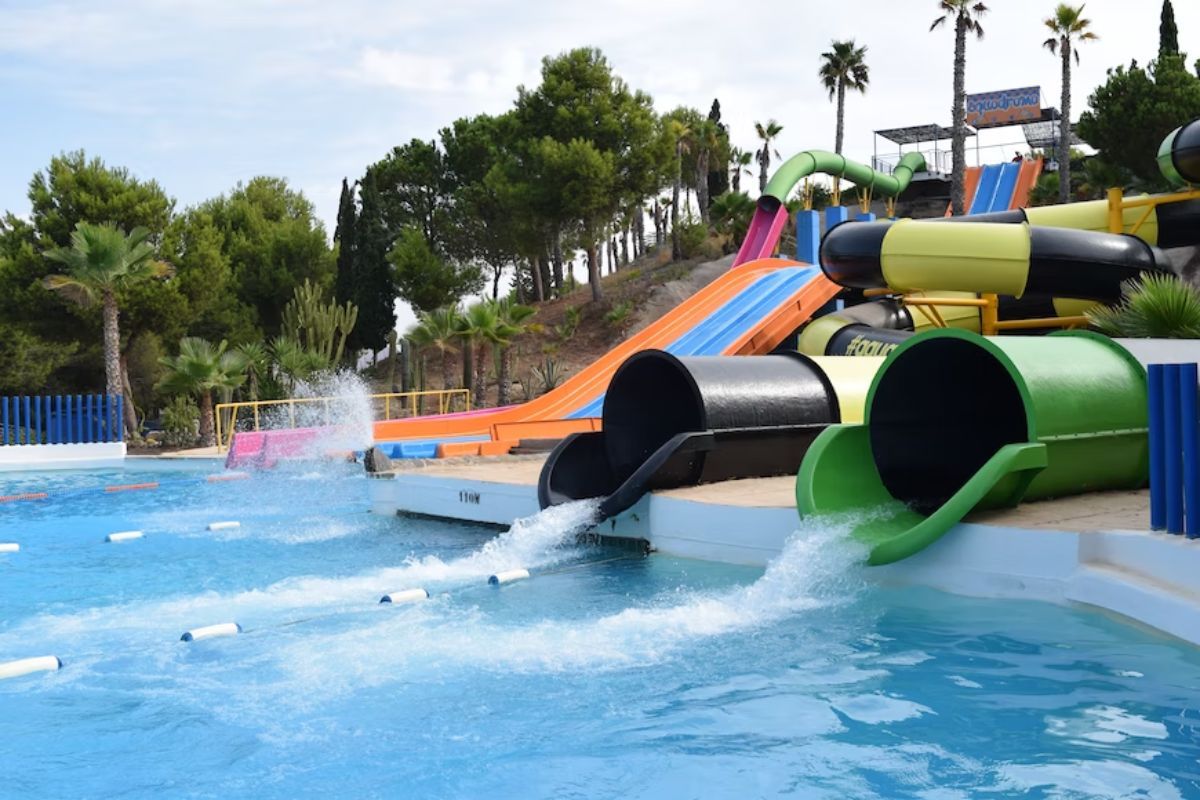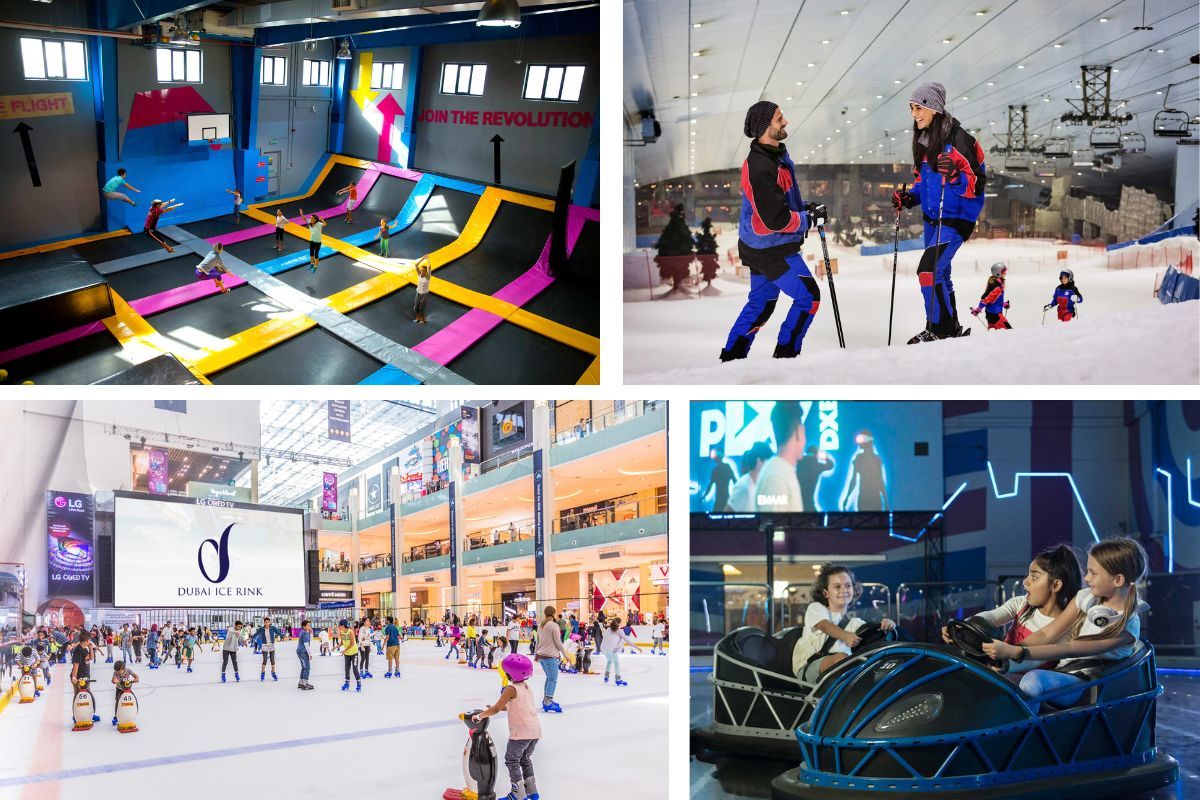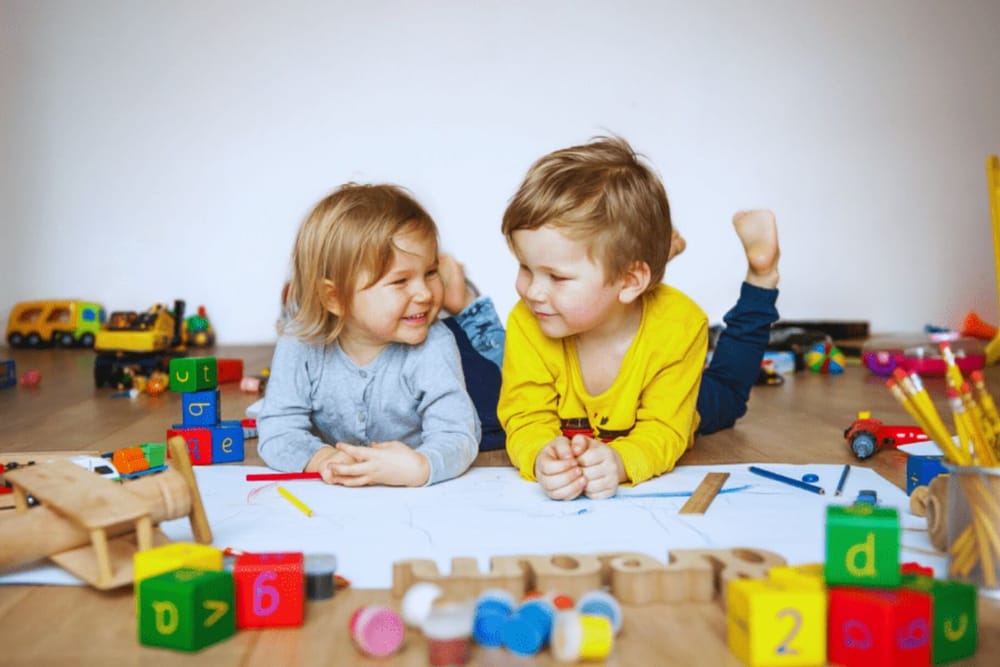In today's digital age, screens are everywhere. From smartphones to tablets, it's becoming increasingly hard to keep our little ones engaged in the world around them without the lure of bright colors and constant animation that screens offer. However, as parents and guardians, we're also acutely aware of the importance of reducing screen time to ensure our toddlers grow up with a healthy balance of activities. This article aims to explore fun, educational, and engaging activities that can keep toddlers happily occupied without the need for digital devices. By encouraging hands-on learning and play, we can provide our children with the foundational skills they need, all while making sure they're having a blast. Let's embark on this journey to discover a treasure trove of activities that will not only keep our toddlers away from screens but also foster their development in the most positive ways.
Understanding the Impact of Screen Time on Toddlers
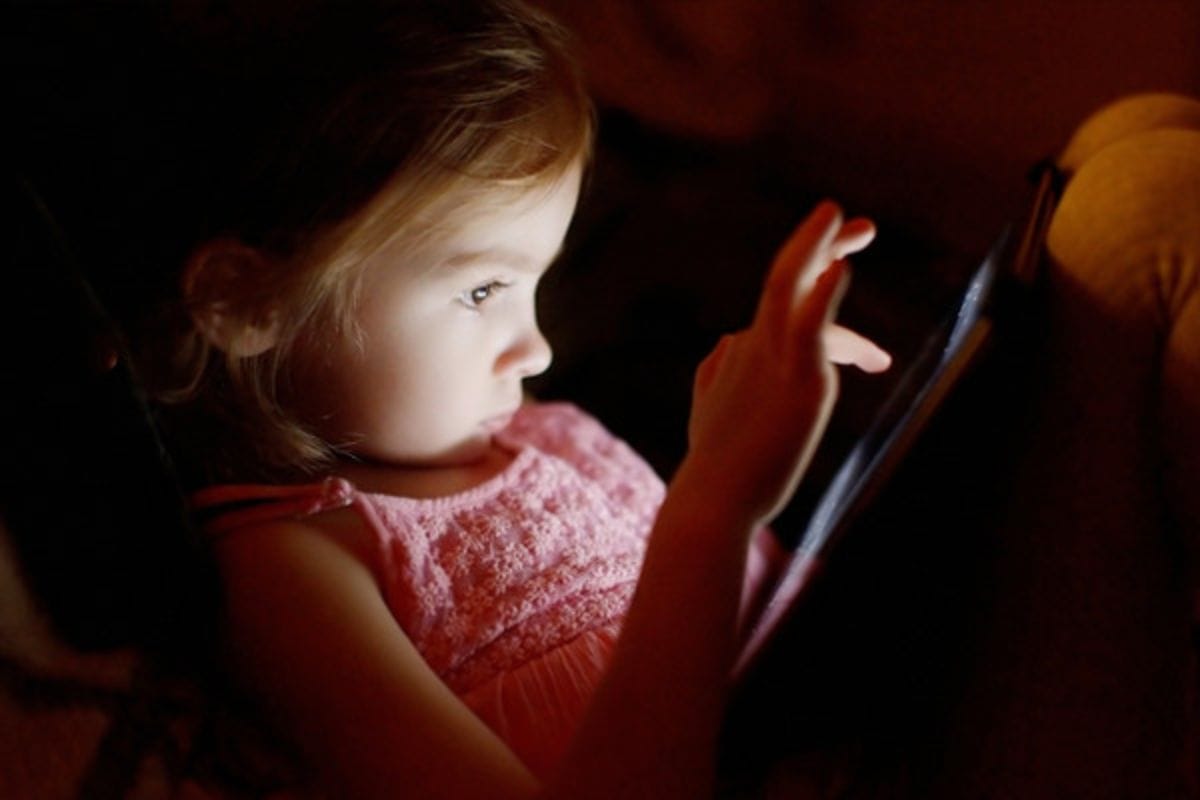
While technology is a fantastic tool for learning and development, moderation is key, especially for our youngest learners. Excessive screen time has been linked to various negative outcomes, including delayed language development, challenges with attention and concentration, and reduced physical activity. On the other hand, engaging toddlers in hands-on, interactive activities can significantly boost their cognitive, motor, and social skills.
Why Limit Screen Time?
- Developmental Benefits: Activities that stimulate the senses and require physical interaction promote brain development in ways that passive screen viewing cannot.
- Physical Health: Active play helps toddlers develop their motor skills and ensures they're getting the exercise they need to grow healthy and strong.
- Social Skills: Real-world interactions with peers and adults teach toddlers valuable communication skills and empathy, laying the groundwork for healthy social development.
Embracing activities that reduce screen time doesn't mean eliminating technology from our lives. Instead, it's about creating a balanced approach that prioritizes direct engagement with the world and people around us. By incorporating a variety of activities into our toddlers' daily routines, we can ensure they're getting the most out of their early years, setting them up for success in the future.
Outdoor Activities
The great outdoors offers a natural playground that's not only thrilling for toddlers but also enriches their learning experience. Here are some outdoor activities designed to captivate the young minds and bodies of our little adventurers.
Nature Walks: Exploration and Sensory Experiences
Nature walks are more than just walks; they are exploratory missions for toddlers, offering endless opportunities to learn about the environment.
What to Do:
- Engage all senses by encouraging your toddler to touch the bark of trees, smell flowers, watch butterflies, and listen to the sounds of nature.
- Turn the walk into a treasure hunt by creating a simple checklist of items to find, such as a flower, a smooth rock, or leaves.
- Use a magnifying glass to look closely at insects, leaves, and other small wonders.
Benefits:
- Stimulates curiosity and questions about nature and science.
- Promotes physical health through walking and exploration.
- Enhances sensory development by engaging all five senses.
Water Play: Benefits of Splashing and Swimming
Water play is a refreshing activity that teaches basic scientific concepts in a fun and engaging way.
What to Do:
- Create a mini water sensory table with different objects to explore concepts of floating and sinking.
- Introduce simple water toys that move with mechanisms, like paddle boats, to spark curiosity about how things work.
- Engage in water painting on the sidewalk or patio, using water and brushes or sponges to create evaporating designs.
Benefits:
- Encourages exploration of cause and effect, seeing how water interacts with different materials.
- Teaches basic principles of physics, including displacement and flow.
- Provides opportunities for imaginative play, transforming a pool or tub into oceans, lakes, or rivers for toy adventures.
Playground Adventures: Social Skills and Physical Development
The playground is a fantastic venue for physical and social development, offering varied equipment and spaces for imaginative play.
What to Do:
- Encourage taking turns on slides and swings, teaching patience and social interaction.
- Introduce simple group games like tag or follow the leader that can be played with other children at the playground.
- Use playground equipment for imaginative play scenarios, such as a pirate ship adventure on a climber or a castle defense game on the swings.
Benefits:
- Enhances physical health through active play, improving balance, coordination, and strength.
- Teaches important social skills like sharing, cooperation, and negotiation during group play.
- Fosters creativity and problem-solving skills, as children navigate playground equipment and interact with peers.
Indoor Activities
When the weather doesn't cooperate or when you're seeking quieter but equally engaging alternatives, indoor activities come to the rescue.
Arts and Crafts: Fostering Creativity and Motor Skills
Arts and crafts not only allow toddlers to express their creativity but also help in developing their fine motor skills and hand-eye coordination. Here are more elaborate ideas:
Finger Painting
- What to Do: Use non-toxic, washable paints and let your toddler use their fingers to create art on large sheets of paper. You can also use leaves, sponges, or potato stamps for varied textures.
- Benefits: Enhances sensory experiences and encourages creative expression without the confines of structured art tools.
Collage Making with Cutouts
- What to Do: Provide your toddler with pre-cut shapes from colorful paper or magazines, glue, and a large sheet of paper to stick these onto. They can create a scene or abstract art.
- Benefits: Develops pattern recognition and planning skills, as they decide where each piece should go.
Clay Modeling
- What to Do: Offer non-hardening modeling clay or homemade dough. Show them how to roll, flatten, and shape the clay into animals, figures, or objects.
- Benefits: Improves fine motor skills and provides a 3D medium for their imagination.
Storytelling and Read-along: Language Development and Imagination
Stories are a gateway to other worlds, and engaging with them can significantly enhance a toddler's language skills and imagination.
Read Aloud from Picture Books
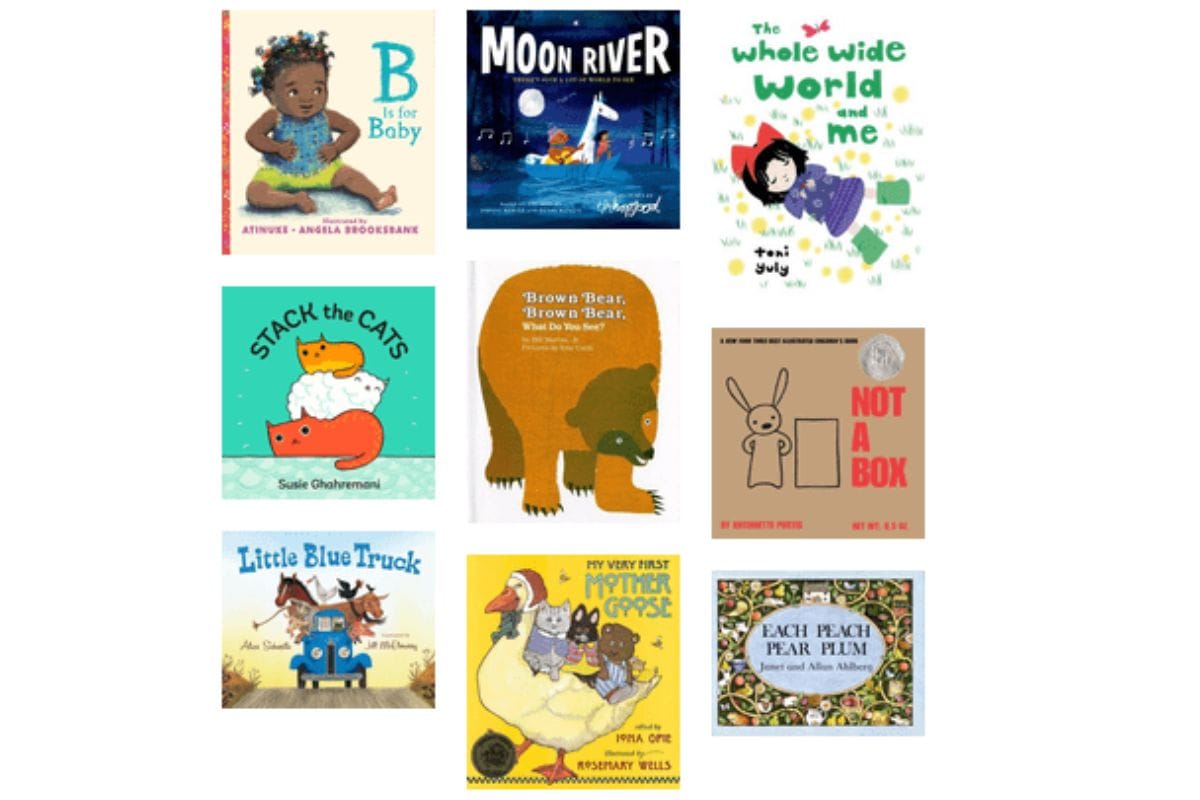
- What to Do: Choose books with vibrant illustrations and simple text. Change your voice for different characters and encourage your toddler to predict what will happen next.
- Benefits: Builds vocabulary, and comprehension skills, and introduces narrative structure.
Act Out Stories with Stuffed Animals
- What to Do: Use stuffed animals or dolls as characters in a story, and act out simple tales together. You can use a toy house or blocks to create settings.
- Benefits: Encourages role-playing and empathy, and helps toddlers understand character motivation and emotions.
Create Your Own Tales Together

- What to Do: Start a story and let your toddler add to it. You can draw pictures together to illustrate the story and create a homemade book.
- Benefits: Fosters creativity, storytelling skills, and a sense of achievement in creating something together.
Simple Science Experiments: Curiosity and Cognitive Growth
Engaging in simple science activities can foster a love for learning and exploration from an early age.
Explore Buoyancy with a Sink-or-Float Activity
- What to Do: Fill a basin with water and gather various small items. Predict whether each will sink or float before testing. Discuss why items sink or float.
- Benefits: Introduces basic physics concepts and encourages hypothesis testing and critical thinking.
Create a Volcano with Baking Soda and Vinegar
- What to Do: Use a small bottle as the volcano's core, surround it with dough or wet sand to form the volcano shape, and then add baking soda and vinegar for the eruption.
- Benefits: Demonstrates chemical reactions and the fun of experimental science.
Social Activities
Social interactions play a pivotal role in a toddler's development, teaching them invaluable skills that they will use throughout their lives.
Playdates: Importance of Interaction with Peers
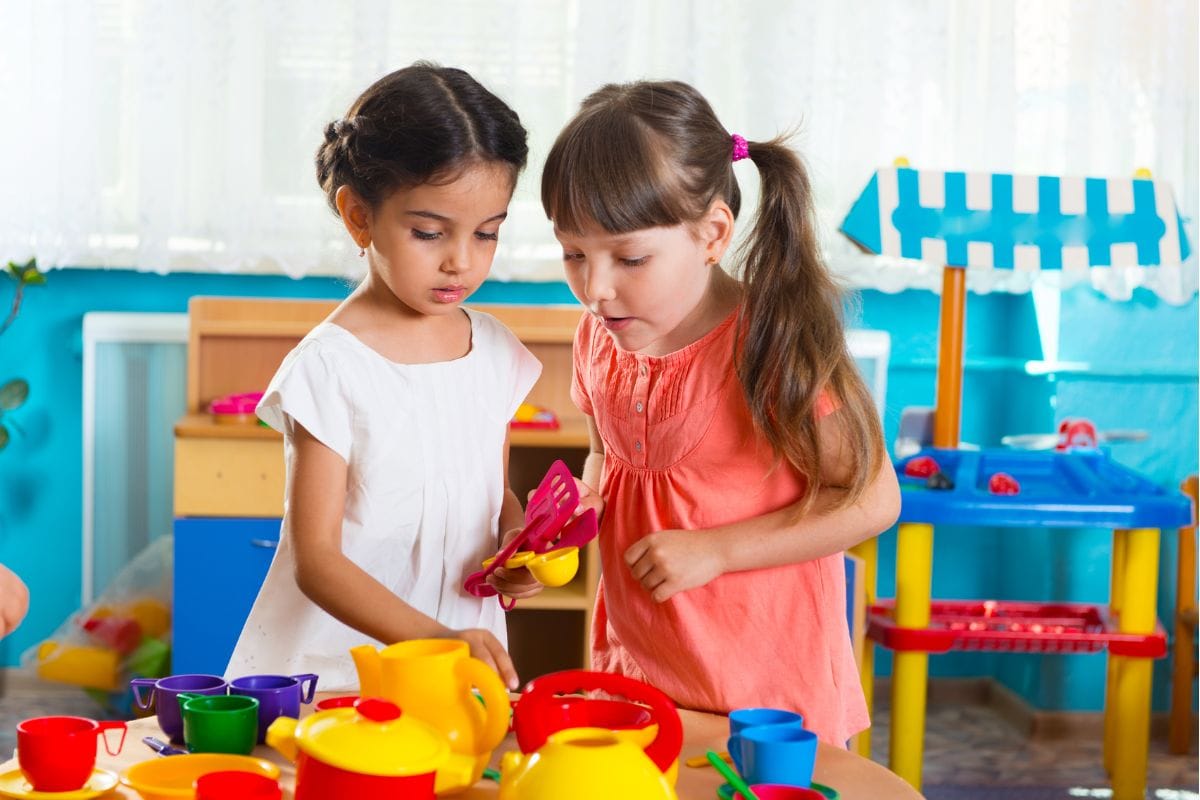
Organizing playdates can be as simple or as structured as you prefer. The key is to create a safe and inviting space where toddlers can interact naturally. Consider setting up themed playdates, such as a "mini zoo" day where each child brings a favorite animal toy, and activities are centered around these animals. This not only encourages sharing and communication but also sparks conversations about animals, their sounds, and habitats.
Practical Tip: Create a small, rotating collection of toys that are only brought out during playdates to keep the toys fresh and exciting for the children.
Family Game Time: Bonding and Learning to Follow Rules
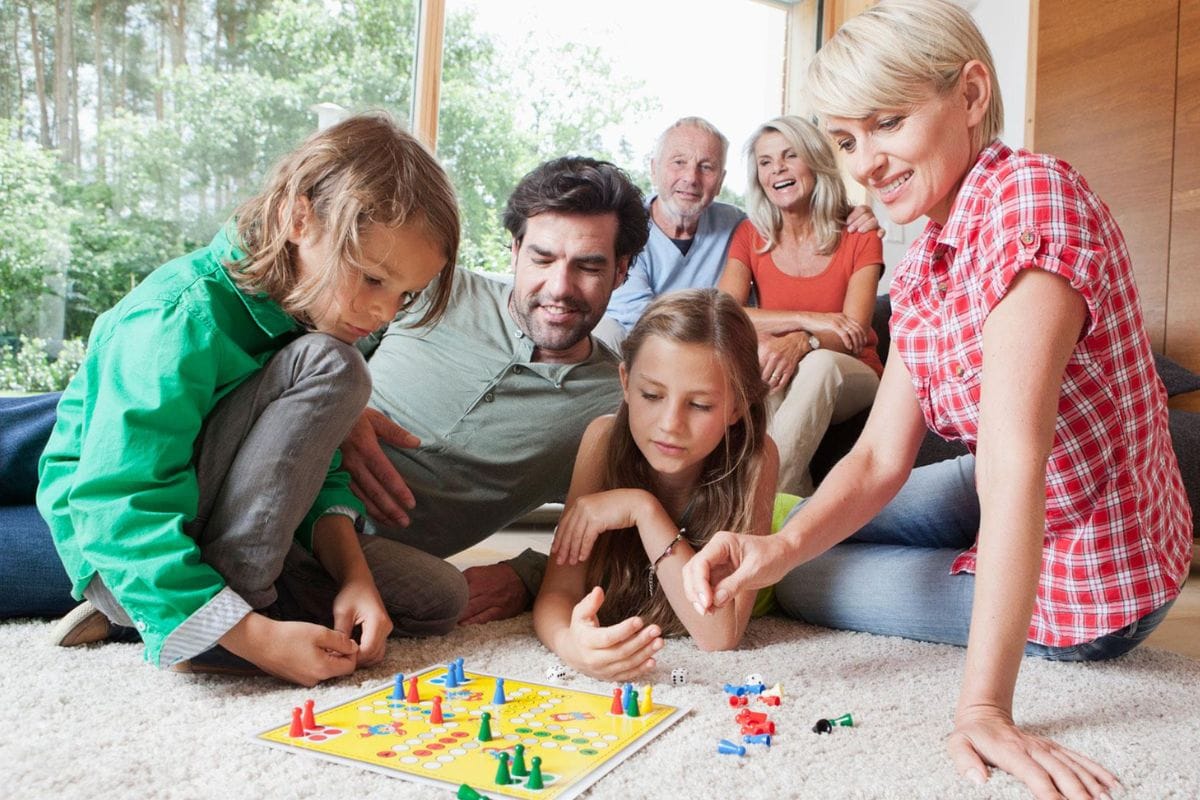
Family game time can include classic board games adapted for toddlers, such as using color-matching games or simple memory cards. These games teach basic skills like color recognition, memory, and turn-taking. You can also invent your own family games, like a simple indoor treasure hunt with clues appropriate for their age level.
Practical Tip: Let your toddler win sometimes but also use games as an opportunity to teach them how to handle losing gracefully.
Building Forts: Problem-solving and Engineering Basics
Building forts can turn into an educational adventure. Discuss with your toddler what type of fort you're building (a castle, a spaceship, etc.), and what materials you'll need. This activity teaches planning and decision-making. As you build, talk about why you place items in certain ways to introduce basic physics concepts like balance and stability in a fun, accessible manner.
Practical Tip: Use lightweight sheets and blankets for easier manipulation and safety. Introduce "construction challenges" for older toddlers, like creating a fort that can stand without chairs.
Pretend Play: Role-playing and Emotional Intelligence
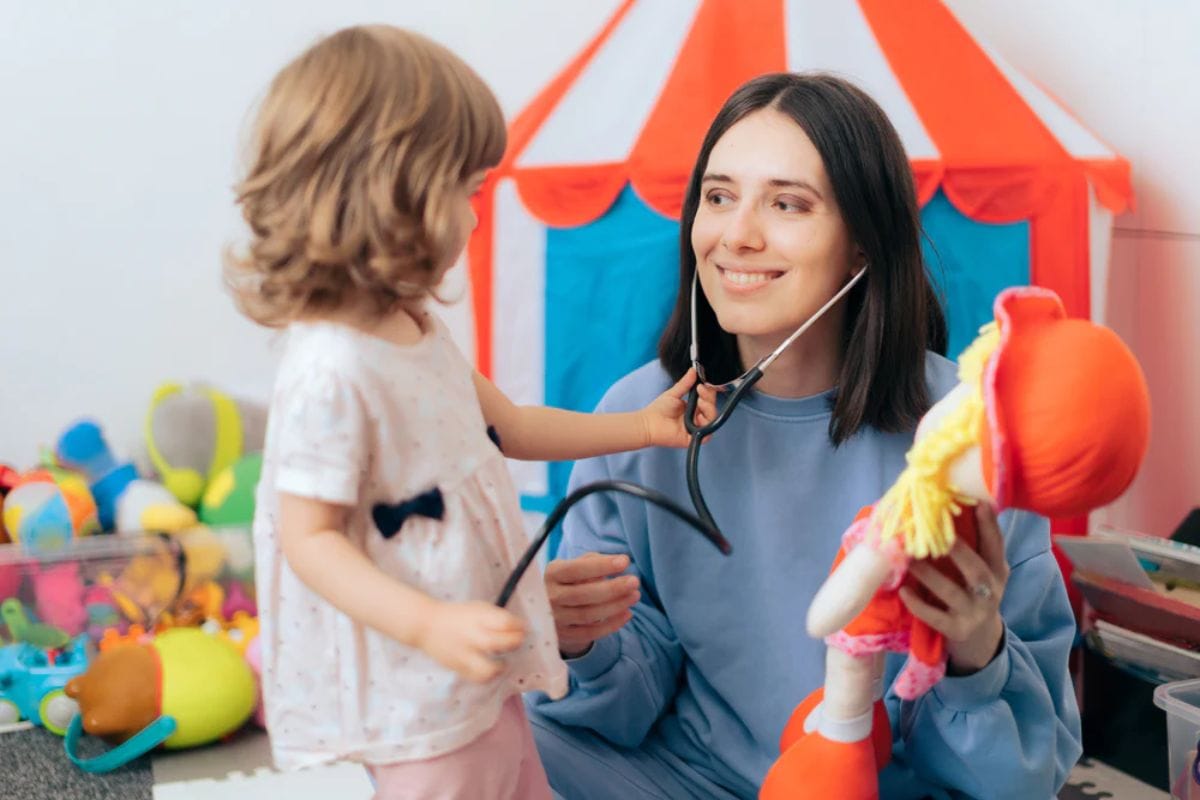
Pretend play can be enriched by creating a "theme box" for different roles your toddler might explore, such as a doctor, chef, or astronaut. Each box can contain items related to that profession, encouraging your toddler to dive deep into their imaginative world. This play form supports language development, as they learn terms associated with each role, and builds empathy as they explore different perspectives.
Practical Tip: Participate in their pretend play by being a patient, customer, or crew member, asking questions that encourage them to think deeper about their role.
Tips for Parents and Guardians
As caregivers, our behavior and routines significantly influence our toddlers. Here are a couple of tips to foster an environment that encourages active, screen-free play.
Setting a Good Example: Limiting Your Own Screen Time
Modeling the behavior you want to see is vital. Try to designate certain times of the day as "screen-free" for the entire family, such as during meals and an hour before bedtime. This helps establish healthy habits and demonstrates that enjoyable and fulfilling activities don't always involve screens.
Practical Tip: Keep a basket in a communal area where everyone, including adults, can place their devices during screen-free times, emphasizing the importance of this rule for everyone.
Creating a Schedule: Balancing Activities Throughout the Day
Creating a balanced schedule doesn't mean packing every minute with activities but rather providing a predictable structure that includes a variety of engagements. Include blocks of time for outdoor play, quiet time, creative activities, and yes, even a little screen time, as it can be educational when used appropriately.
Practical Tip: Use a visual schedule with pictures representing different parts of the day's routine. This helps toddlers understand and look forward to each activity, making transitions smoother.
In the quest to reduce screen time, the world outside digital devices brims with possibilities that can enrich your toddler's development. The activities we've explored are but a starting point. Each day offers new opportunities to discover, create, and learn together. By embracing these experiences, we not only offer our toddlers a foundation for holistic growth but also strengthen our bonds with them. So, let's put down our devices and open up a world of imagination, creativity, and play for our little ones. The benefits of reduced screen time are profound, and the journey is rewarding for both toddlers and their caregivers. Together, let's make the most of these precious early years, filled with joy, discovery, and love.
Also Read:
